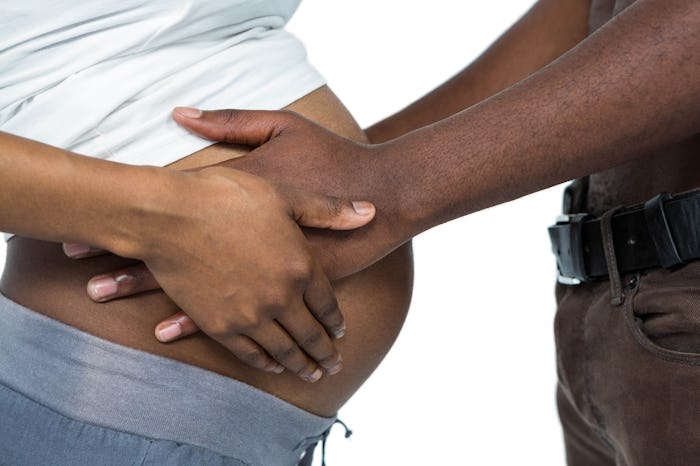Life

6 Signs Your Baby Will Come On Time (Or, At Least, Pretty Soon)
As you approach your due date, one of the biggest things on your mind is looking out for the signs your baby will come on time, early, or late (being past due is every mom's worst nightmare.) And although more often than not, it can feel like due dates are more like "suggestions" than the actual day your baby will make their appearance, it helps to have something to plan around.
According to Parents, due dates are anything but predictable. To determine them, your OB will take the date of your last period and add the equivalent of 40 weeks to it, giving you an approximate date of your baby's arrival. They give doctors a rough outline of where they should be developmentally at each point in your pregnancy. However, according to a piece from the Huffington Post, only about five percent of women deliver on their actual due date. The sonograms during your pregnancy can help doctors check your baby's developments, making sure they're on track, but according to Fit Pregnancy, unless you don't know the date of your last period, ultrasounds aren't really even necessary for determining due dates.
It's virtually impossible to know when exactly your baby will come. And many women panic when they're due date passes, rushing to schedule an induction. However, Fit Pregnancy noted that this may cause your baby to be born too soon, and it's probably best to wait it out until your doctors are sure your baby is ready to be born.
If your baby is showing signs of being healthy and meets the developmental milestones, you can believe that they'll come whenever they're ready too, regardless of due date. So before you start planning a birth-day party, keep in mind that the due date may not be your baby's actual day of birth. However, there are a few signs that you're right on track to deliver soon that shouldn't go unnoticed.
1Your Baby "Drops"
Although each baby is different, most moms report noticing an increase in pressure to their pelvic area at around 39 weeks, according to Baby Center. It's a sign that your baby is slowly starting to lower and positing itself for labor.
2Your Cervix Dilates
When you enter your ninth month of pregnancy, your OB will start to check your cervix for signs of dilation and "ripening." According to What to Expect, this means that your cervix is preparing an opening of the birth canal.
3You Start Nesting
Although you may nest at anytime during your pregnancy, the American Pregnancy Association (APA) noted a strong correlation with the last weeks of pregnancy and the urge to clean, arrange the baby's room, or take care of last minute details.
4You Notice An Increase In Vaginal Discharge
In the final weeks of pregnancy, you will loose what is so attractively termed your "mucus plug," which is vaginal mucus that blocks the entrance to the cervix. According to Mama Natural, it likely won't happen all at once, but if you notice a definite increase in discharge, it probably means that labor is coming soon.
5Your Back Pain Increases
Baby Center cited increased back pain as one of the indicators of pre-labor. Although you've probably experienced some discomfort your entire pregnancy, with practice contraction and the added pressure of your baby, the pain may increase as your due date draws near.
6You Get Braxton Hicks Contractions
Although the APA noted that you may get Braxton Hicks contractions as early as the second trimester, they're likely to come more frequently and become more noticeable when you're closer to delivery.